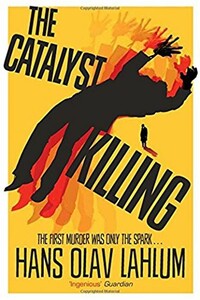Satellite People | страница 99
Nor had the doctor ever known a patient to receive such grave news with such calm as Magdalon Schelderup showed. He had later come to several routine check-ups, but had never asked any questions or made any comments as to how he felt about the situation. He had not revealed who he had told about his heart, but the doctor had the impression that he had kept it to himself.
My final question to the helpful doctor was whether he had heard anything of what Magdalon Schelderup had said when he was semi-conscious after the heart attack. The doctor remarked with a merry little laugh that that was something that Magdalon Schelderup had also asked, a few hours after the attack. He could only tell me what he had told him – and that was that the name ‘Synnøve’ was the only thing that had been clear to anyone in the midst of all the incomprehensible burble. Schelderup had commented with an almost joking smile that it was, in principle, perhaps not such a good thing to mention your secretary rather than your wife, but at least no great secrets had been revealed.
In short, Patricia had once again been right. Something dramatic had happened in Magdalon Schelderup’s life in the summer of 1968, which provided a credible explanation as to the origins of his first will. However, any deeper significance in relation to his dramatic death in May 1969 was still unclear to me, to say the least.
My ponderings on the cases from the war were suddenly interrupted by a heavy pounding on the door. A breathless constable came into the room and, obviously impressed, informed me that they had just received a phone call from the Ministry of Foreign Affairs. The foreign minister, Jonas Lykke, was leaving on a trip to Eastern Europe the following morning, but would take the time to see me this afternoon if I could go there immediately.
X
The foreign minister, Jonas Lykke, was smaller than he looked on the television, but otherwise more or less as I expected.
The former Resistance fighter and prime minister was what could be described as corpulent with greying hair. But his gaze was still intense, his voice was dynamic and his handshake was firm. Sitting behind a large desk in his office, Jonas Lykke radiated precisely the calm and dignity that one would expect of a foreign minister.
There were two tall piles of paper in front of him. To my surprise, they both appeared to be about the mandate possibilities in the up-and-coming general election, rather than the day’s foreign policy issues.



